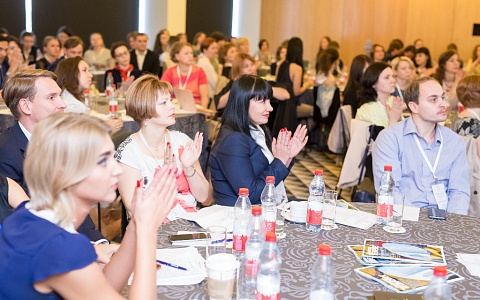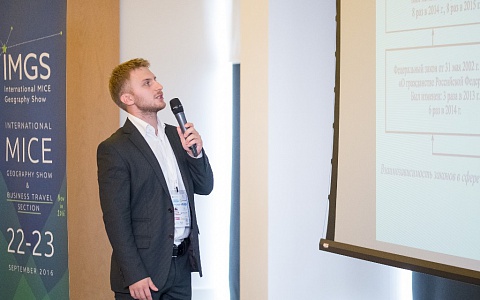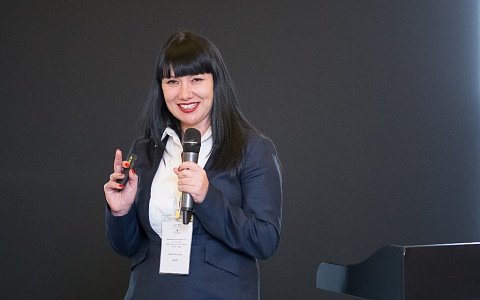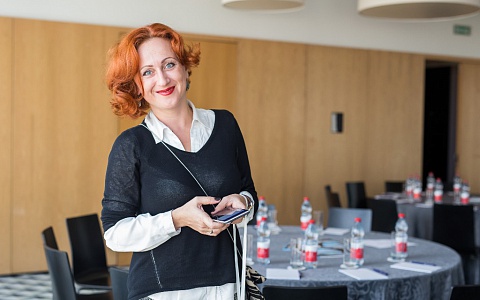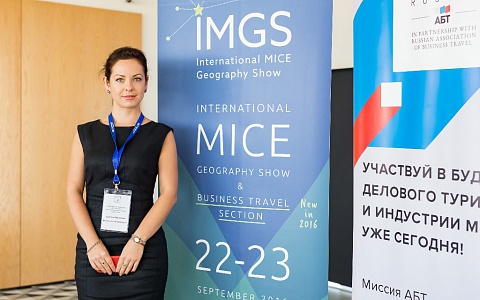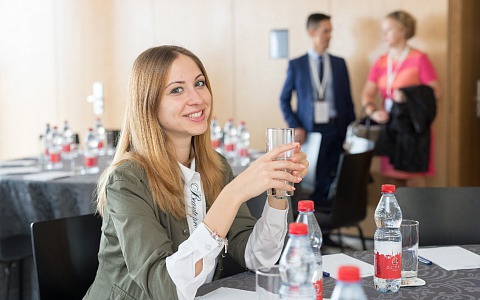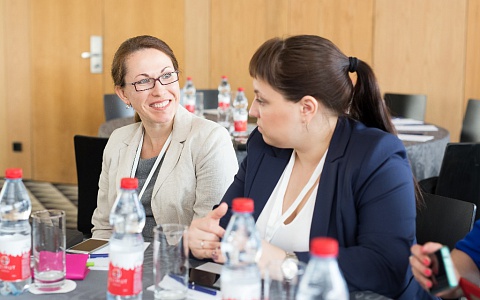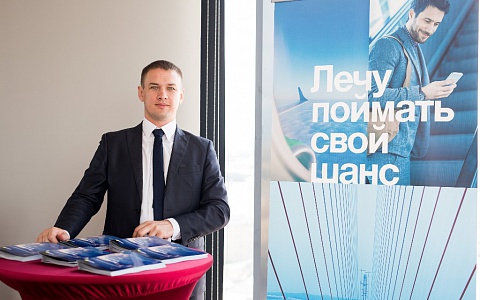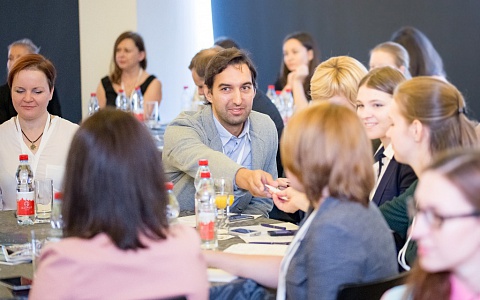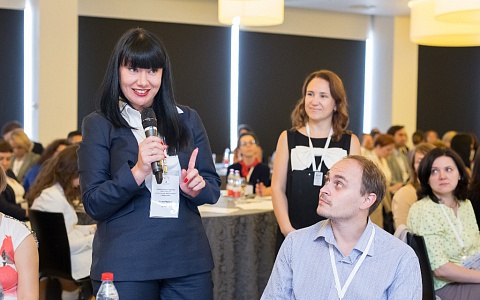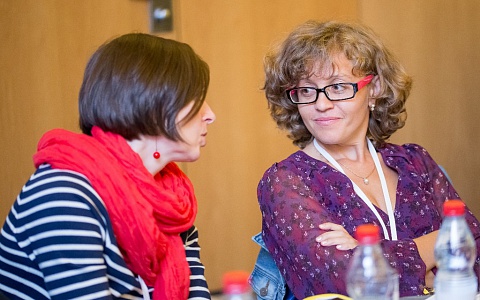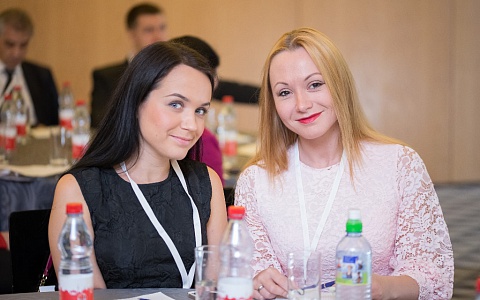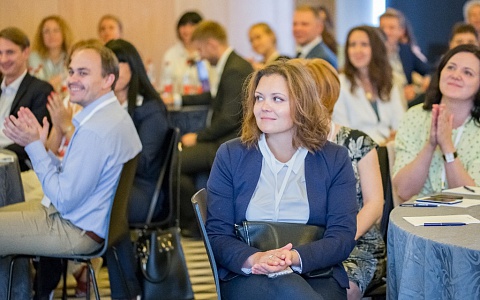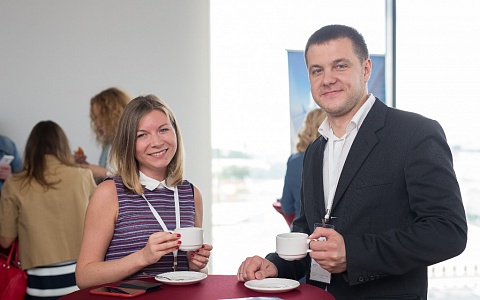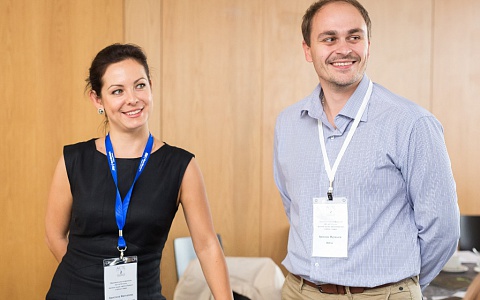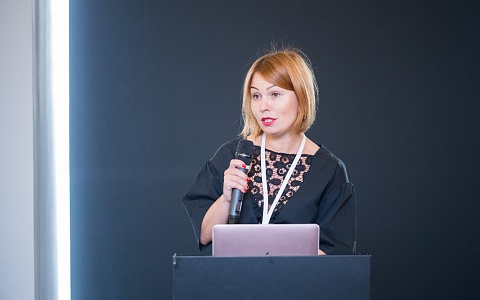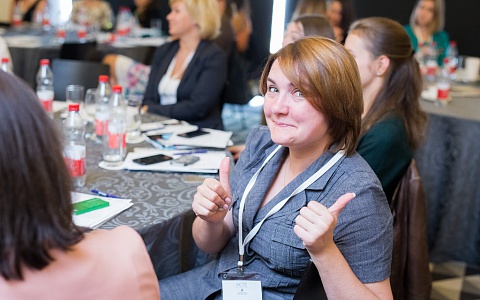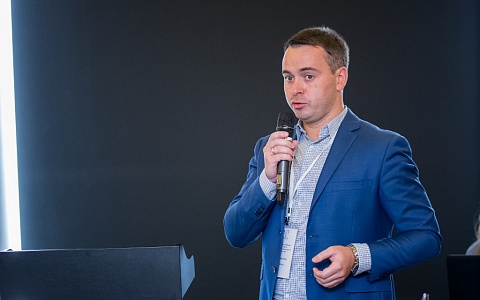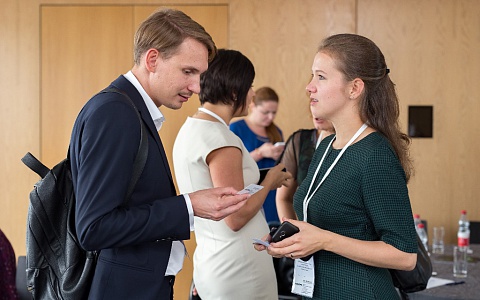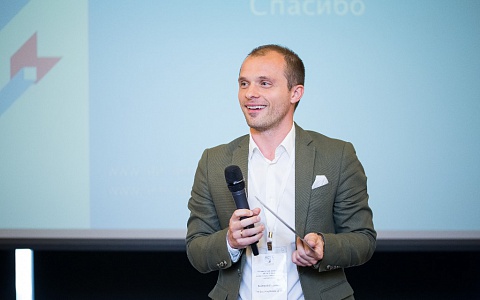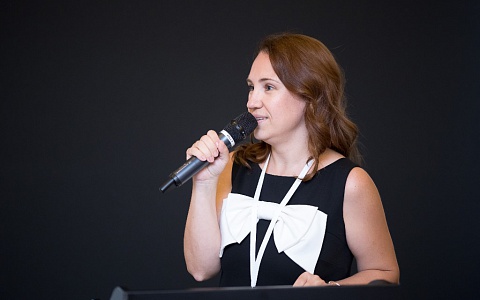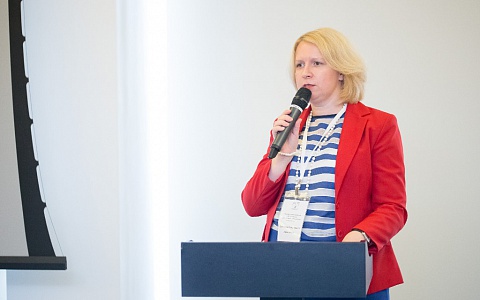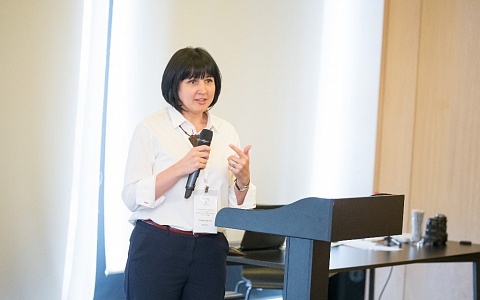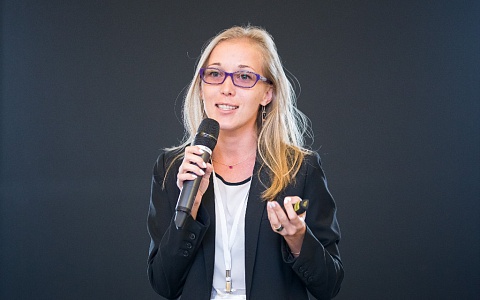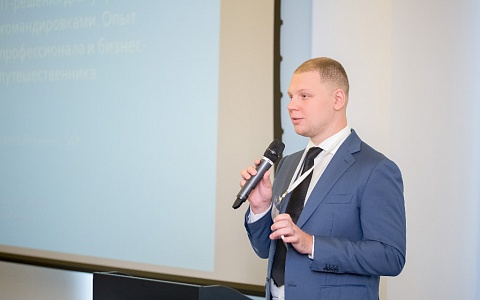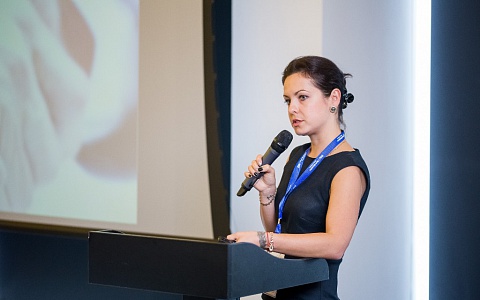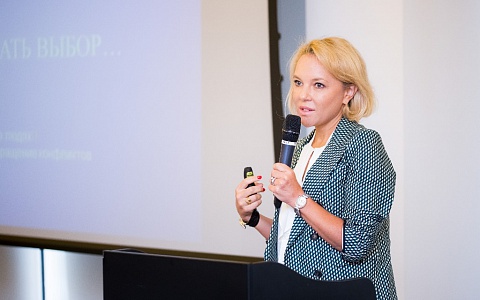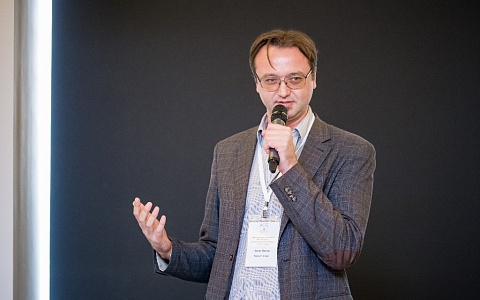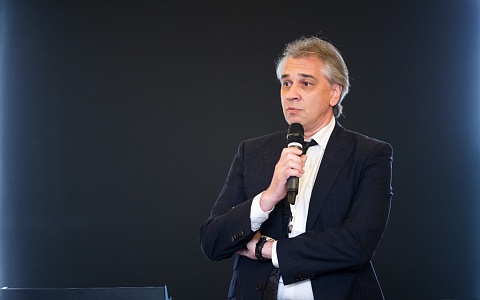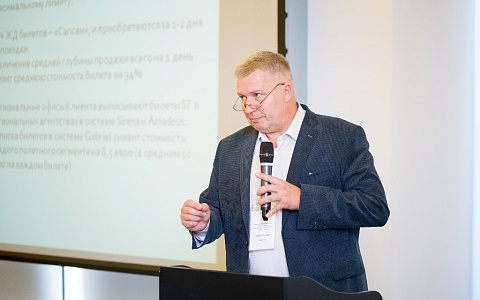ABT-ACTE Russia conference in Saint Petersburg: most business travellers have no special contacts for the case of emergency
The view over the Fontanka and the Neva from panoramic windows of the 18 floor, roofs of the Northern capital, sea gulls flying by inspired the participants of ABT-ACTE Russia conference “Business travel: care for business and care for people” not only to discuss difficult and burning case studies, but also to talk in an informal way and to meet colleagues from other cities. The welcome cocktail and partners` presentations were held in one of three Russian hotels belonging to the Leading Hotels of the World chain – Taleon Imperial Hotel. Experts presented their research in Azimut Hotel Saint Petersburg. The event was held on August 24-25.
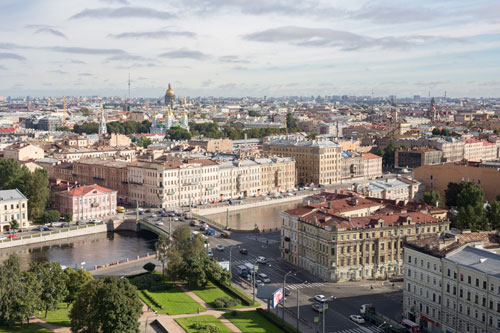
The educational part of the conference was opened by the speech of Artem Levchenko, logistics group IT expert of SAP, devoted to corporate travel policy and IT solutions in business travel management. The speaker divided the process of business trip arrangement into several stages: an application sent by the business traveller, its preliminary approval by the chief, online booking, approval and cost reimbursement. “As a rule, customers ask standard questions: how to speed up all these processes and to arrange them in the best way, to consolidate accounting and to cut business trip costs”, the speaker noted. In his words, all the companies have similar problems when they arrange business trips: difficulties with paper documents (36%), timely invoicing and payments (35%), use of early booking discounts (22%).
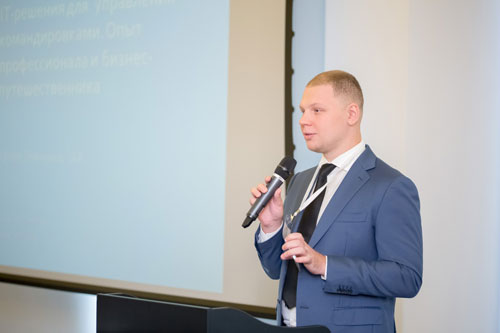
“Mobile applications can help cope with all the above mentioned problems”, is Mr Levchenko`s opinion. The expert stressed that mobile applications (35%), cloud products (34%), extended data analytics (24%) and social networks (23%) had the greatest effect on modern business. “IT solutions can help cut direct and indirect costs, which results in a considerable decrease in audit costs – which is a lot already!” he is convinced.
Andrey Zubkov, general director of Starliner agency dwelled in more detail on the way “technological assistants” could facilitate control over business travellers. “What is control needed for? Is it really intended for cutting business travel costs only? Or for avoiding emergency situations, ensuring a safe and a comfortable business trip for the employee?” the speaker asked.
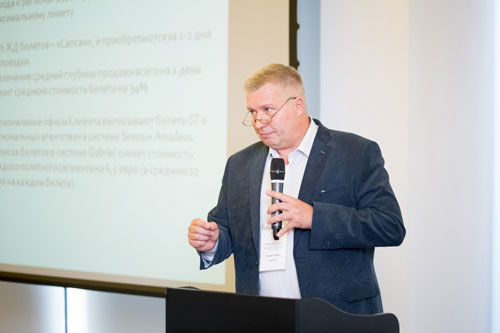
In his words, simple analytical tools may help you learn a lot of interesting facts and find out where the money “leaks” from the travel budget. For example, 40% of business travel flights are made in the afternoon and evening, instead of morning flights, that are also available, which increases business trip costs by 34%. Flex travel fares with extra luggage payment are used in more than 50% of one-day trips – and the airline ticket cost increases by 2 thousand rubles on average immediately. “And what about bonus cards of airlines? Almost 98% of employees have Aeroflot-Bonus cards, about 46% - those of S7 Airlines. The average ticket price for these business travellers is 28% higher than for those who do not have the cards, for the same destinations”, Ms Zubkov said. “Even the booking system matters: tickets issued through Gabriel are €10 cheaper on average”.
Mr Zubkov asked the audience not to forget that the travel policy was a system of not only restrictions, but of encouragement as well, and that you could always come to an agreement with breachers. In fact, they look for loopholes and bypasses, trying to increase the quality of their trip. “Let your employee leave office earlier the day before the business trip or book a superior room, give an incentive trip to the person who books the cheapest tickets, simplify the accounting procedure – and the loyalty level will increase at once!”, he is convinced.
Oksana Kostuyk, personal assistant of vice president of Parallels told the audience about the ways to keep travel data confidential. The speaker dwelled on special aspects of such technologies as 1Password, KeePass, eWallet, Roboform and LastPass, and named the ways to make your Skype account and e-mail more secure, and to avoid money fishing from your credit card.
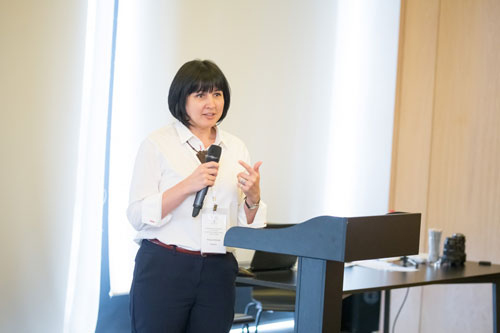
The topic “Duty of care: what, where, when” was developed by two speakers – Ekaterina Kondrashina, director of Aeroclub office in Saint Petersburg, and general manager of City Travel Agency Julia Manuilova. Ms Kondrashina said that the most frequent causes of incidents employees may get into included industrial and natural disasters, strikes, terrorist acts, viruses, epidemics, flight delays and cancellations. “But none of these factors are usually included into insurance, so do not think it is a panacea for all the woes”, the speaker noted. Duty of care implies risk assessment, a special emergency team in your staff and communication with safety experts (for example, ISOS), timely and constant provision of information on emergency to travellers.
“Do not neglect new technologies, because there are applications that are updated in the background mode and let you receive information even if there is no Internet”, Ms Kondrashina added.
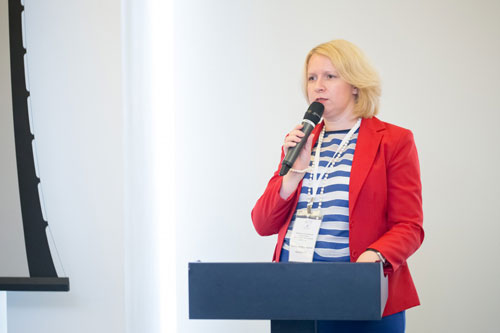
However, tracking employees during their business trip has several disadvantages. For example, using GPS runs mobile phone batteries down very quickly. Besides, total control with the help of geolocation is not always ethical – you should discuss this option with the traveller, the expert added.
Julia Manuilova stressed in her speech, that the situation with duty of care had changed dramatically for the past few years. “There were few multinational corporations earlier and, consequently, people did not go on business trips frequently”, Julia noted. In her words, you could minimize risks by creating your own emergency department or turning to professionals for help in such situations. “In most large international companies these two approaches are combined”, the speaker added.
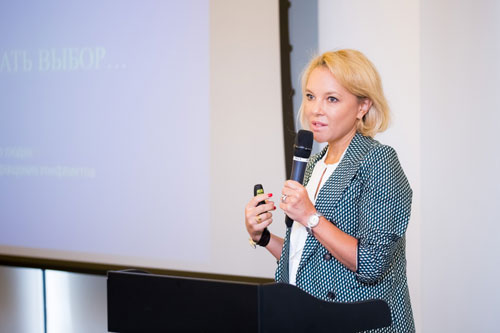
Ms Manuilova also noted that nowadays regions of the highest risk included Afghanistan, the West Bank of Jordan, Iraq, Palestine, North Korea, and the Gaza Strip. The situation was considered acceptable in Argentina, Australia, Latvia, Poland, the Netherlands, Chile and some more countries.
Kristina Malkhazova, regional sales manager Russia of Best Western Hotels & Resorts covered a very important topic – safety within the framework of the rapid growth of P2P services and their popularity with business travellers. She cited data according to which about 250 companies, including Google, Salesforce, Evernote and Lyft, joined Airbnb Business Travel in 2015. Although only 13% of business travellers were ready to use Airbnb to find accommodation for their business trip.
“Advantages of P2P services include wide geography, booking simplicity and speed, cost efficiency. But there are drawbacks as well – for example, absence of control and state regulation or any guarantees at all”, Ms Malkhazova pointed out.
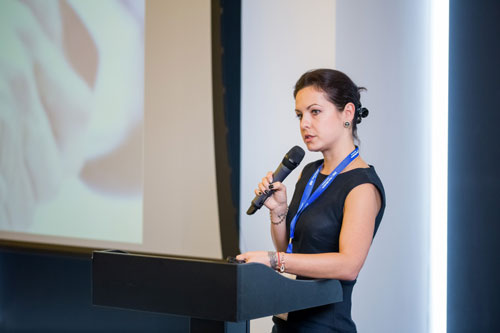
The expert asked the question: does the business traveller take care of his safety himself? In her words, 80% of business travellers are sure the company bears full responsibility for them. Fifty four percent of them have no special contact for the case of emergency during their business trip. And 22% do not know at all who to address in a critical situation.
“Do not forget: despite all its advantages, Airbnb does not bear responsibility for illegitimate intrusion into private and business life of the customer, or observation of health and safety regulations, while hotel chains take a number of measures to ensure safety of their guests”, Kristina stressed. Interestingly, an average bill of a business traveller booking accommodation through Airbnb amounts to $571, and a hotel bill – only $ 222.
After the panel discussion devoted to the ways of encouraging employees to observe trip provision requirements, director of MICE department of ZCTS Aleksey Sergeechev took the floor. He spoke about the past, the present and the future of the meetings industry.
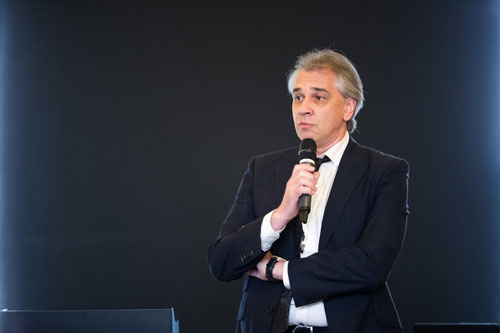
“Two years ago the ratio was 50 x 50 – half of the projects were held in Russia and half – abroad. Nowadays 80% of events have moved to the territory of our country. What will be tomorrow?” the expert wondered.
The main difficulties event organizers have to face nowadays include a challenging geopolitical and economic situation, safety issues, and budget cuts. “Besides, many decisions on holding conferences and incentives are taken in the last moment. As the result, geographical accents have shifted: now everybody wants to go to Moscow, Moscow region, Sochi and Saint Petersburg. The future of MICE in Russia is in the regions, of course”, Mr Sergeechev concluded.
In the words of deputy director of MICE & Events department of UTS Ksenia Zaitseva, even in the current difficult financial situation you could find certain advantages in every region – everything depends on the size of the group, the budget and the aim of the event. Russia`s advantage in terms of MICE is first of all easy accessibility and the absence of exchange rate fluctuations. The countries of the CIS, the Baltic States and Eastern Europe have a good price/quality ratio. Cyprus, Greece and Turkey offer good facilities for large groups, the sea and simplified visa rules.
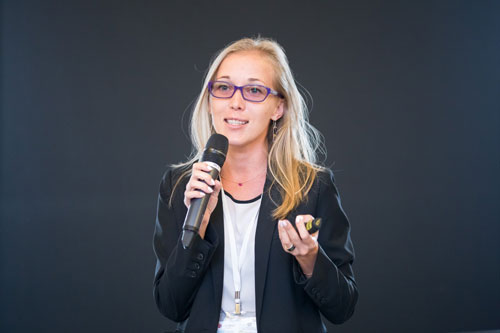
“We are used to the fact that you come across a lot of problems when you arrange an event in Russia, but they all are manageable. You can compensate high demand for certain destinations with early booking, unpredictability – with preliminary examination of venue reputation”, the speaker stressed.
“Geography is not always the key to success. It is frequently ensured by creative solutions, use of new technologies and budget economy”, she added. The next block of speeches was devoted to the problems of foreign employees in Russia and those of Russian ones working abroad. Kirill Aksenov, head of foreign staff group in IBM provided detailed information on cross-border employment. He noted that the two main problems included contradictions between the administrative and the labour legislation caused by the excessive conceptual framework and annual amendments, as well as lack of migration experts in the market.
Head of business travel department and frontdesk of Luxoft Inna Ananko stressed, that Russian experts usually regarded cross-border employment as unique experience: “For some it is their lifelong dream coming true – to leave the country in search of a better life, for others – it is an opportunity to work in an international corporation, to increase their revenue level, to study a foreign language and to grow professionally”.
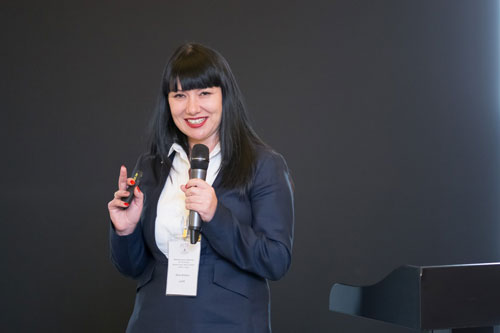
Zoran Paniak, business consultant of Western Vision, told conference participants about the problems an expat usually faced in a new company. In his words, an employee passes through four stages of cultural adaptation in a foreign country: initial euphoria and joy, cultural shock (irritation and dislike), gradual correction (humour and prospects) and the “feel like home” condition (adaptation and biculturalism). “At work we exchange our knowledge of culture with colleagues, overcome language gap, put into practice the behaviour we have learned. The main thing is not to lose yourself in the process of adaptation”, Zoran noted.
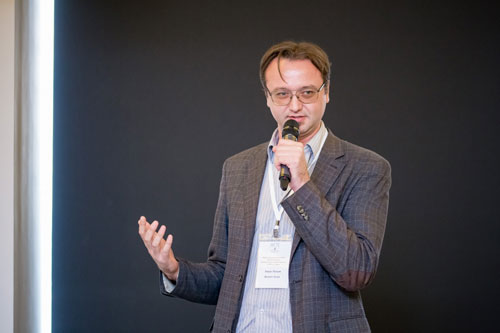
“ABT-ACTE Russia conference in Saint Petersburg has gathered experts, ready for an open meaningful dialogue and exchange of experience. We all got acquainted and discussed a lot of interesting and burning topics on the first day already – the process was facilitated by an informal atmosphere during the standing reception. As for me, real case studies and examples discussed by the speakers on the second day were the most useful – because you can speak about theoretical aspects and features of the business travel market endlessly”, Ilya Zhakaev, head of customer service of UTS shared his impressions.
“The conference in Saint Petersburg has been held for the third time, and more and more delegates visit it every year – their number increases by about 25% annually. Next year we are going to hold an event for 200 participants with the help of Saint Petersburg Congress Bureau”, Irina Mikhalkova, senior customer relations expert of ABT-ACTE Russia noted.
The event was held with the support of the Tourism Development Committee of Saint Petersburg and Saint Petersburg Congress Bureau. Partners of the event were hotel operators - Azimut Hotels, Best Western Hotels & Resorts and The Leading Hotels of the World, Vertical Aparthotel and Taleon Imperial Hotel, agencies - UTS Group, Starliner and Zelenski Corporate Travel Solutions, S7 Airlines, sightseeing double-decker operator City SightSeeing St. Petersburg, mobile application developer Eventicious, Saint Petersburg event support company DataForum, Baltma Tours DMC and electronic newspaper RATA-news.
Ekaterina Larina
